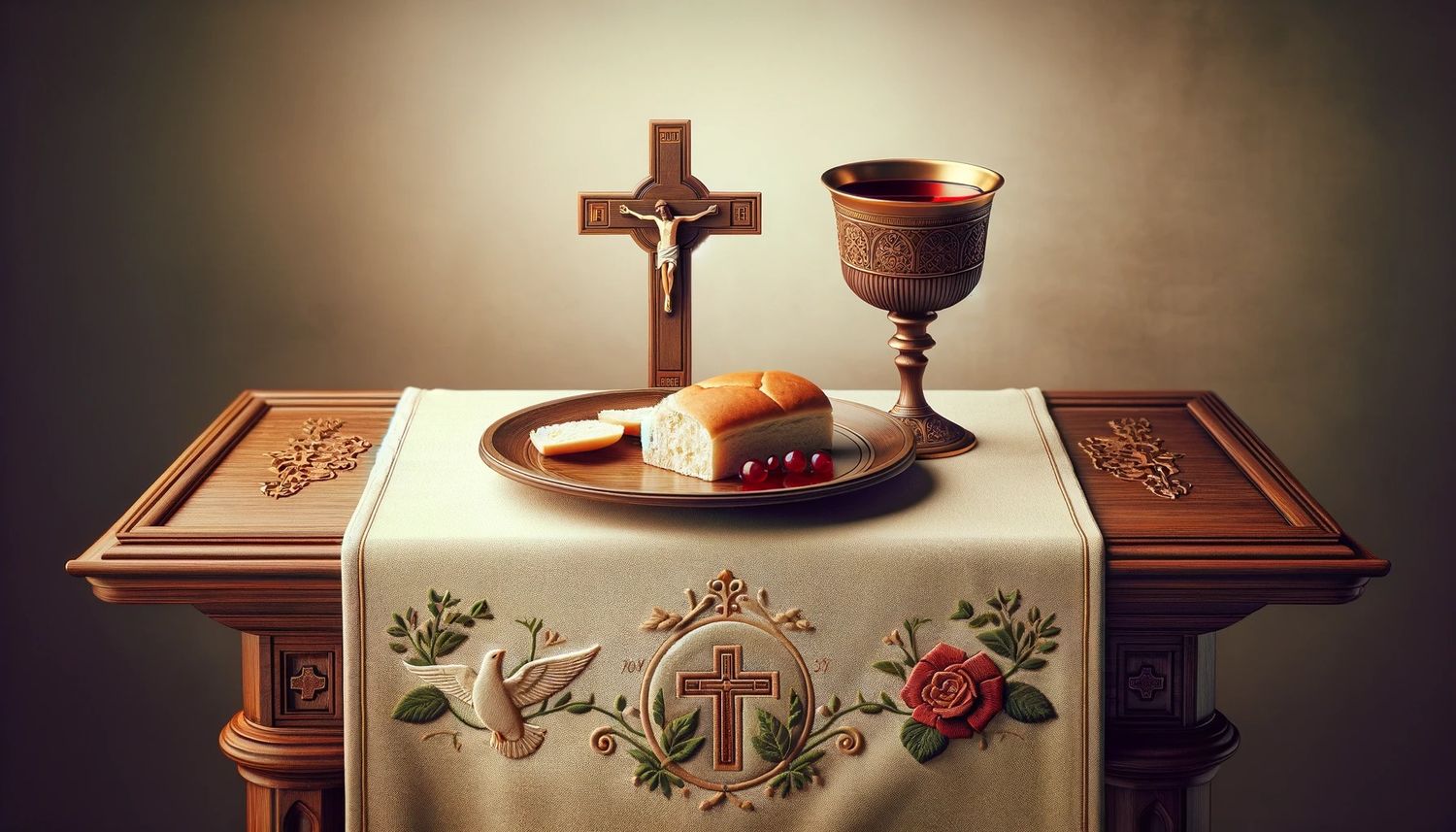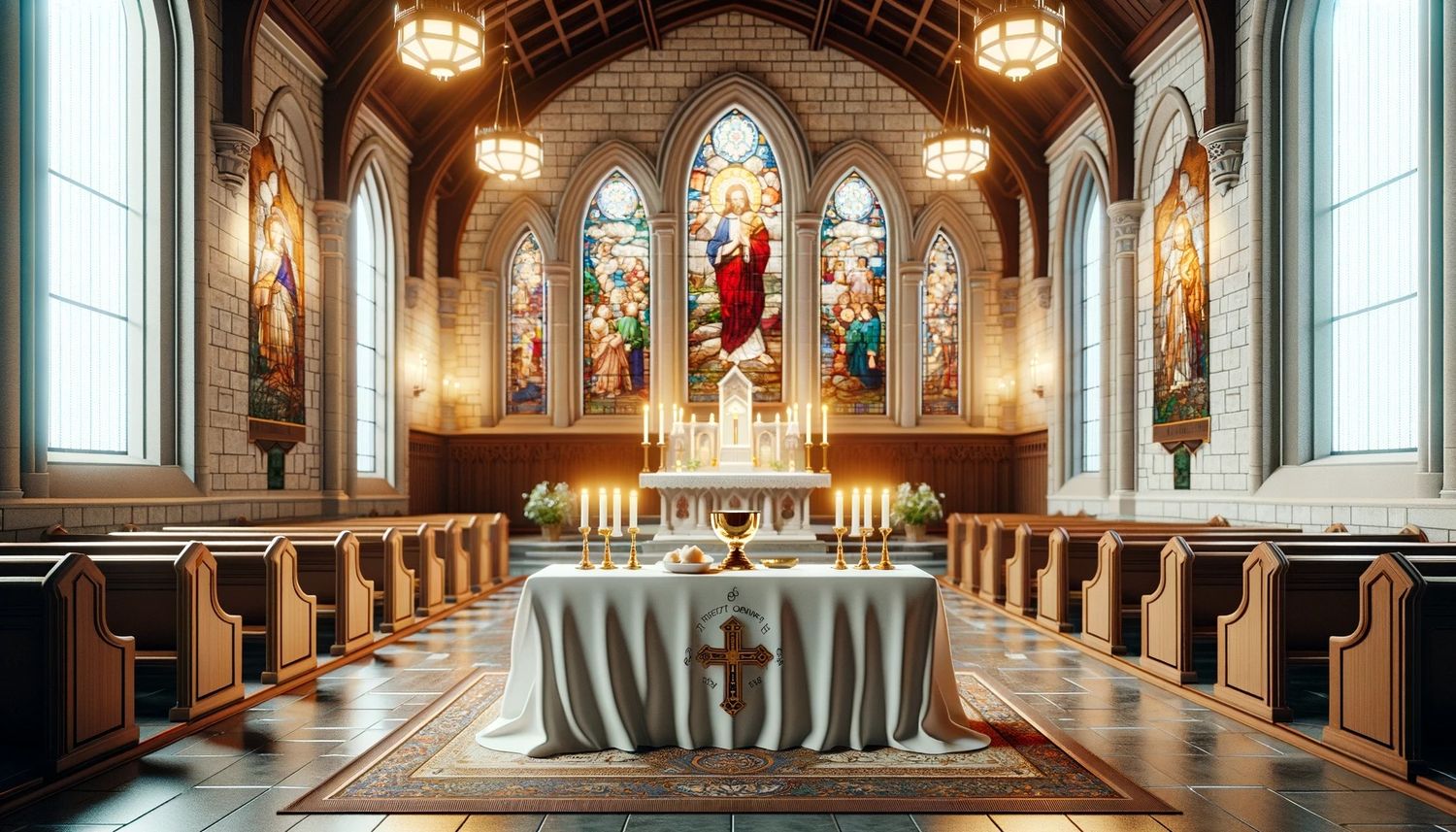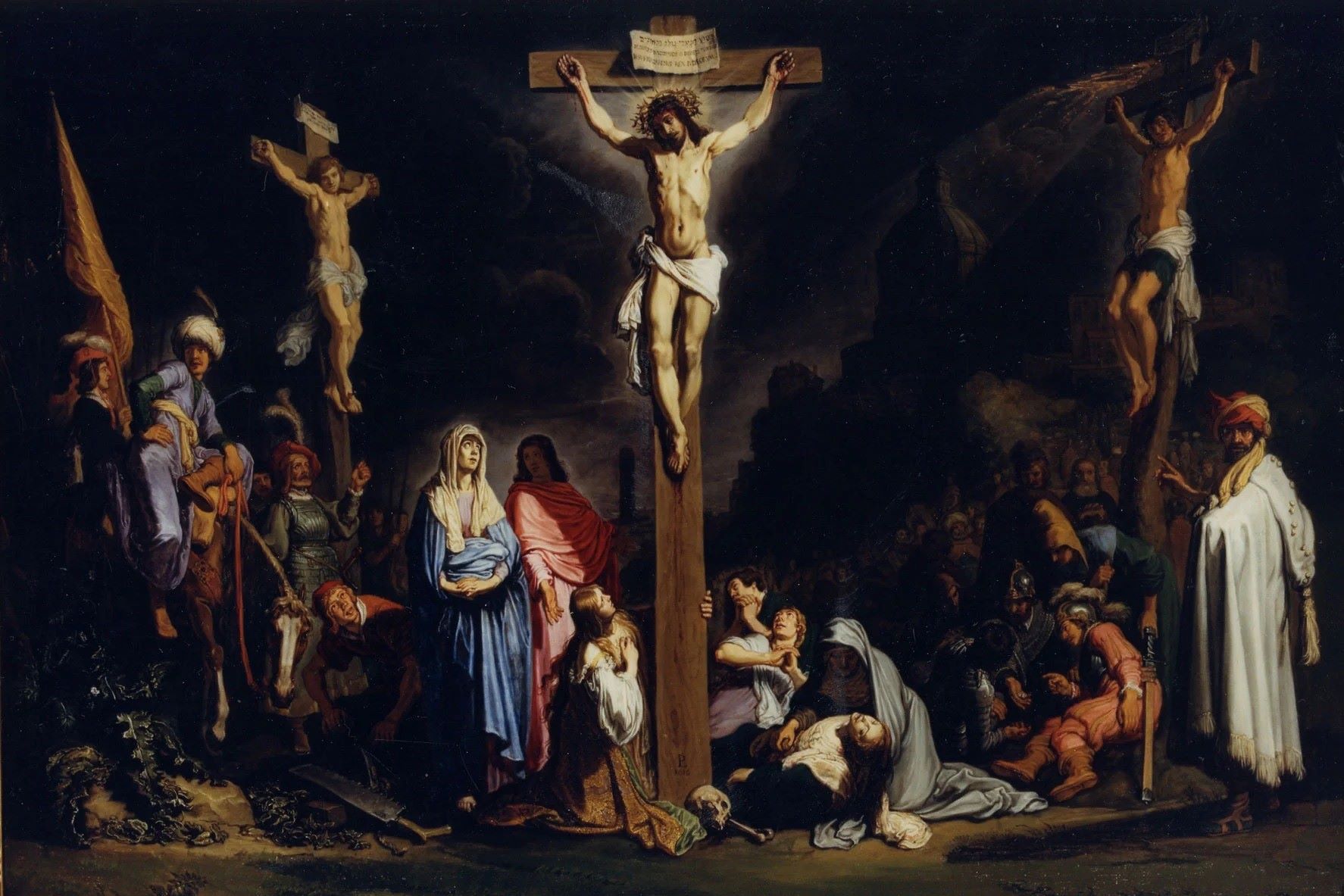Home>Theology and Spirituality>What Does The Lutheran Church Believe About Communion


Theology and Spirituality
What Does The Lutheran Church Believe About Communion
Published: March 3, 2024
Peter Smith, Editorial Director at Christian.net, combines deep insights into faith, politics, and culture to lead content creation that resonates widely. Awarded for his contributions to religious discourse, he previously headed a major organization for religious communicators, enhancing dialogue on faith's societal impacts.
Discover the Lutheran Church's beliefs about Communion and its significance in theology and spirituality. Explore the theological perspectives and spiritual practices related to Communion.
(Many of the links in this article redirect to a specific reviewed product. Your purchase of these products through affiliate links helps to generate commission for Christian.net, at no extra cost. Learn more)
Table of Contents
The Importance of Communion in the Lutheran Church
Communion, also known as the Eucharist, holds significant importance in the Lutheran Church. It is considered a sacred act that strengthens the faith of believers and fosters a deeper connection with God and the community of believers. The act of partaking in communion is seen as a way to remember the sacrifice of Jesus Christ and to receive the spiritual nourishment that comes from participating in the body and blood of Christ.
Read more: What Lutherans Believe About Communion
The Significance of Communion in Lutheran Faith
-
Spiritual Nourishment: In the Lutheran tradition, communion is viewed as a means of receiving spiritual nourishment. It is believed that through the consumption of the bread and wine, participants are spiritually fed and sustained in their faith journey.
-
Remembrance of Christ's Sacrifice: Communion serves as a powerful symbol of remembrance for the sacrifice of Jesus Christ. Lutherans believe that through the act of partaking in the Eucharist, they are commemorating the Last Supper and the redemptive work of Christ on the cross.
-
Unity and Community: Communion is also seen as a unifying act within the Lutheran community. It symbolizes the unity of believers in Christ and their shared identity as members of the body of Christ.
-
Renewal and Forgiveness: For Lutherans, communion is a source of renewal and forgiveness. It is a time for believers to seek forgiveness for their sins and to experience the grace and mercy of God in a tangible way.
The Role of Communion in Worship
In Lutheran worship, communion is often celebrated as a central part of the liturgy. The act of coming together to partake in the Eucharist is seen as a sacred and solemn occasion, where believers are invited to encounter the presence of Christ in a profound way. The sharing of the bread and wine is accompanied by prayers, hymns, and readings from the Scriptures, creating a rich and meaningful worship experience for participants.
In summary, communion holds a central place in the life of the Lutheran Church, serving as a source of spiritual nourishment, a symbol of Christ's sacrifice, a unifying force within the community, and a means of experiencing God's grace and forgiveness. It is a practice that is deeply rooted in the faith and tradition of Lutheranism, and it continues to be a cherished and revered aspect of worship for Lutheran believers around the world.
The Lutheran Understanding of the Eucharist
The Lutheran understanding of the Eucharist, also known as Holy Communion, is deeply rooted in the teachings of Martin Luther and the theology of the Reformation. Lutherans believe in the real presence of Christ in the sacrament of the Eucharist, meaning that they affirm the spiritual presence of Christ in, with, and under the elements of bread and wine. This belief is based on the words of Jesus at the Last Supper, where he said, "This is my body" and "This is my blood." Lutherans interpret these words as a testament to the real presence of Christ in the bread and wine, while also acknowledging that the elements themselves do not change physically.
In Lutheran theology, the Eucharist is seen as a means of grace, where believers receive the true body and blood of Christ for the forgiveness of sins and the strengthening of faith. This understanding is expressed in the Lutheran confessions, which affirm the real presence of Christ in the sacrament and emphasize the importance of receiving the Eucharist as a way to partake in the benefits of Christ's sacrifice on the cross.
Lutherans also hold to the belief that the Eucharist is a communal act, meant to be shared among believers in the context of the worshiping community. The act of coming together to partake in the Eucharist is seen as a demonstration of unity and fellowship among believers, as they gather around the table of the Lord to receive the gifts of grace and forgiveness that come through the sacrament.
In summary, the Lutheran understanding of the Eucharist affirms the real presence of Christ in the sacrament, emphasizes the importance of receiving the Eucharist as a means of grace, and highlights the communal nature of the act of partaking in the body and blood of Christ. This understanding is central to the faith and practice of Lutherans and continues to shape their worship and spiritual life.
The Role of Bread and Wine in Communion
The bread and wine used in communion hold a significant role in the Lutheran Church. According to Lutheran belief, the bread and wine are not mere symbols, but they are the means through which the real presence of Christ is received by the participants. The bread, which is typically unleavened, represents the body of Christ, while the wine represents the blood of Christ. These elements are central to the sacrament of communion and are regarded with reverence and solemnity.
In the Lutheran tradition, the use of bread and wine in communion is deeply rooted in the biblical accounts of the Last Supper, where Jesus instituted the sacrament. Lutherans hold to the belief that the bread and wine, when consecrated during the Eucharistic celebration, become the true body and blood of Christ, while still retaining their physical properties. This understanding is based on the teachings of Martin Luther and is expressed in the Lutheran confessions, which affirm the real presence of Christ in the sacrament.
The act of partaking in the bread and wine during communion is seen as a sacred and transformative experience for believers. It is a tangible way for participants to encounter the presence of Christ and to receive the spiritual nourishment that comes from partaking in the body and blood of Christ. The bread and wine serve as a visible and tangible means through which believers receive the grace, forgiveness, and spiritual sustenance that Christ offers through the sacrament of communion.
In Lutheran worship, the bread and wine are treated with great care and reverence. They are consecrated during the Eucharistic prayer, where the celebrant invokes the Holy Spirit to bless and sanctify the elements, setting them apart for the sacred purpose of communion. The act of sharing the bread and wine among the worshiping community is a solemn and meaningful ritual, where believers are invited to partake in the body and blood of Christ and to experience the grace and presence of God in a profound way.
In summary, the bread and wine play a central role in the sacrament of communion in the Lutheran Church. They are not merely symbolic elements, but they are the means through which believers receive the real presence of Christ and experience the grace and forgiveness that come from partaking in the body and blood of Christ. The bread and wine are regarded with reverence and solemnity, and their use in communion is a cherished and integral aspect of Lutheran worship and spiritual life.
The Lutheran View on Real Presence
The Lutheran view on real presence in the Eucharist is a central tenet of their faith and theology. Lutherans affirm the belief in the real presence of Christ in the sacrament of the Eucharist, meaning that they hold that Christ is truly present in, with, and under the elements of bread and wine. This understanding is rooted in the teachings of Martin Luther and is expressed in the Lutheran confessions, which emphasize the spiritual presence of Christ in the sacrament.
Lutherans interpret the words of Jesus at the Last Supper, "This is my body" and "This is my blood," as a testament to the real presence of Christ in the bread and wine. While Lutherans affirm the real presence of Christ, they also maintain that the elements of bread and wine do not undergo a physical transformation. Instead, they believe that Christ is present in a spiritual and sacramental manner, where the true body and blood of Christ are received by believers through the consecrated elements.
The Lutheran view on real presence is grounded in the understanding of the Eucharist as a means of grace. Lutherans believe that through the act of partaking in the body and blood of Christ, believers receive the forgiveness of sins and the strengthening of faith. This belief is expressed in the Lutheran confessions, which affirm the real presence of Christ in the sacrament and emphasize the importance of receiving the Eucharist as a way to partake in the benefits of Christ's sacrifice on the cross.
In Lutheran theology, the real presence of Christ in the Eucharist is seen as a profound mystery that transcends human understanding. While the physical elements of bread and wine remain unchanged, Lutherans believe that Christ is truly present in, with, and under these elements, offering himself to believers as a source of grace, forgiveness, and spiritual nourishment.
In summary, the Lutheran view on real presence affirms the spiritual presence of Christ in the sacrament of the Eucharist. This belief is central to the faith and practice of Lutherans and shapes their understanding of the Eucharist as a means of grace, where believers receive the true body and blood of Christ for the forgiveness of sins and the strengthening of faith.
The Practice of Communion in Lutheran Worship
In Lutheran worship, the practice of communion holds a central and revered place. The celebration of the Eucharist is a solemn and sacred occasion, where believers gather to partake in the body and blood of Christ. The act of communion is often integrated into the liturgical structure of Lutheran worship, with careful attention given to the preparation and administration of the sacrament.
Preparation and Administration
The preparation of communion in Lutheran worship involves careful attention to the elements of bread and wine. The bread, typically unleavened, is often baked and broken by the celebrant as a symbolic representation of Christ's body broken for the forgiveness of sins. The wine, which may be either red or white, is poured into a chalice and consecrated during the Eucharistic prayer. The act of consecration is a solemn and reverent moment, where the celebrant invokes the Holy Spirit to bless and sanctify the elements, setting them apart for the sacred purpose of communion.
Communion Liturgy
The act of partaking in communion is often accompanied by a rich liturgy that includes prayers, hymns, and readings from the Scriptures. The congregation is invited to approach the altar to receive the bread and wine, which are distributed by the celebrant and often assisted by other clergy or lay ministers. The act of sharing in the body and blood of Christ is a solemn and meaningful ritual, where believers are invited to encounter the presence of Christ in a profound way.
Frequency of Communion
The frequency of communion in Lutheran worship varies among different congregations and traditions. Some Lutheran churches celebrate communion weekly, while others may do so bi-weekly or monthly. The decision on the frequency of communion is often influenced by theological, pastoral, and practical considerations within the local congregation. Regardless of the frequency, the act of partaking in communion is regarded as a significant and transformative experience for believers, where they encounter the real presence of Christ and receive the spiritual nourishment that comes from partaking in the body and blood of Christ.
Communion and Community
Communion in Lutheran worship is a communal act, meant to be shared among believers in the context of the worshiping community. The act of coming together to partake in the Eucharist is seen as a demonstration of unity and fellowship among believers, as they gather around the table of the Lord to receive the gifts of grace and forgiveness that come through the sacrament. The practice of communion serves to strengthen the bonds of community and to affirm the shared identity of believers as members of the body of Christ.
In summary, the practice of communion in Lutheran worship is a cherished and integral aspect of the faith and tradition of Lutheranism. It is a sacred and solemn occasion, where believers gather to partake in the body and blood of Christ, receive spiritual nourishment, and experience the grace and presence of God in a profound way. The act of communion is deeply rooted in the rich liturgical tradition of the Lutheran Church and continues to be a central focus of worship for Lutheran believers around the world.













